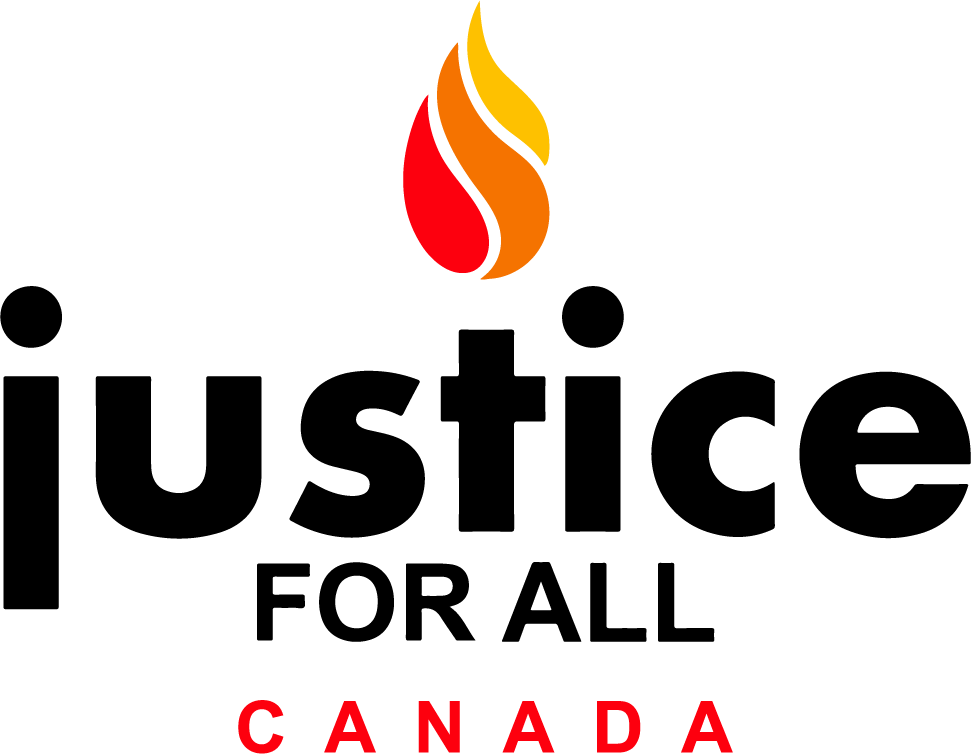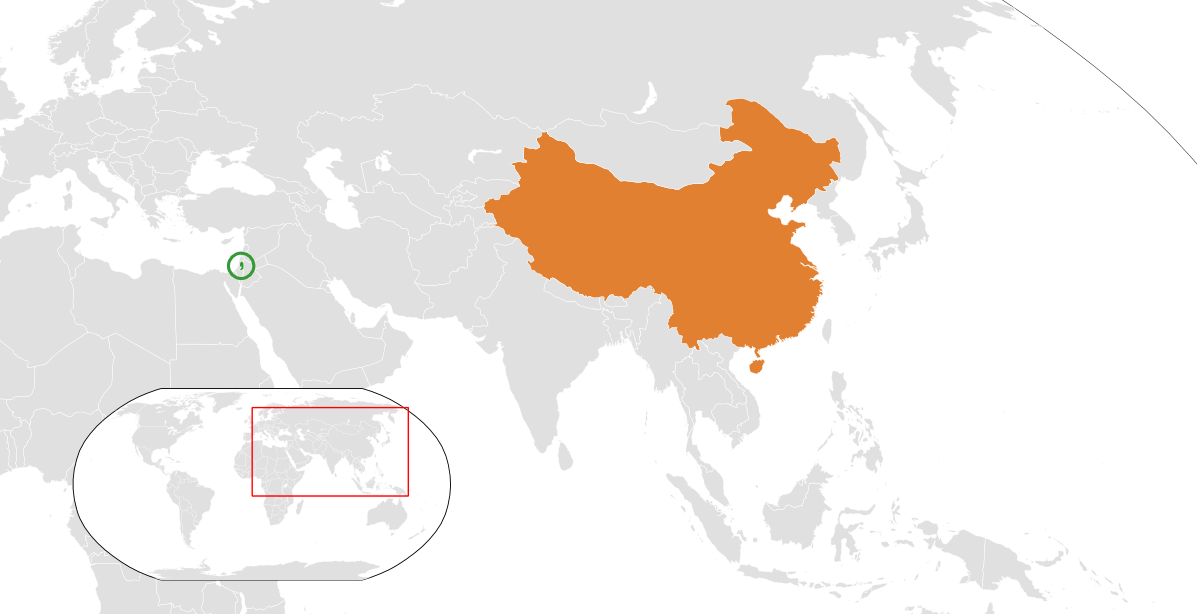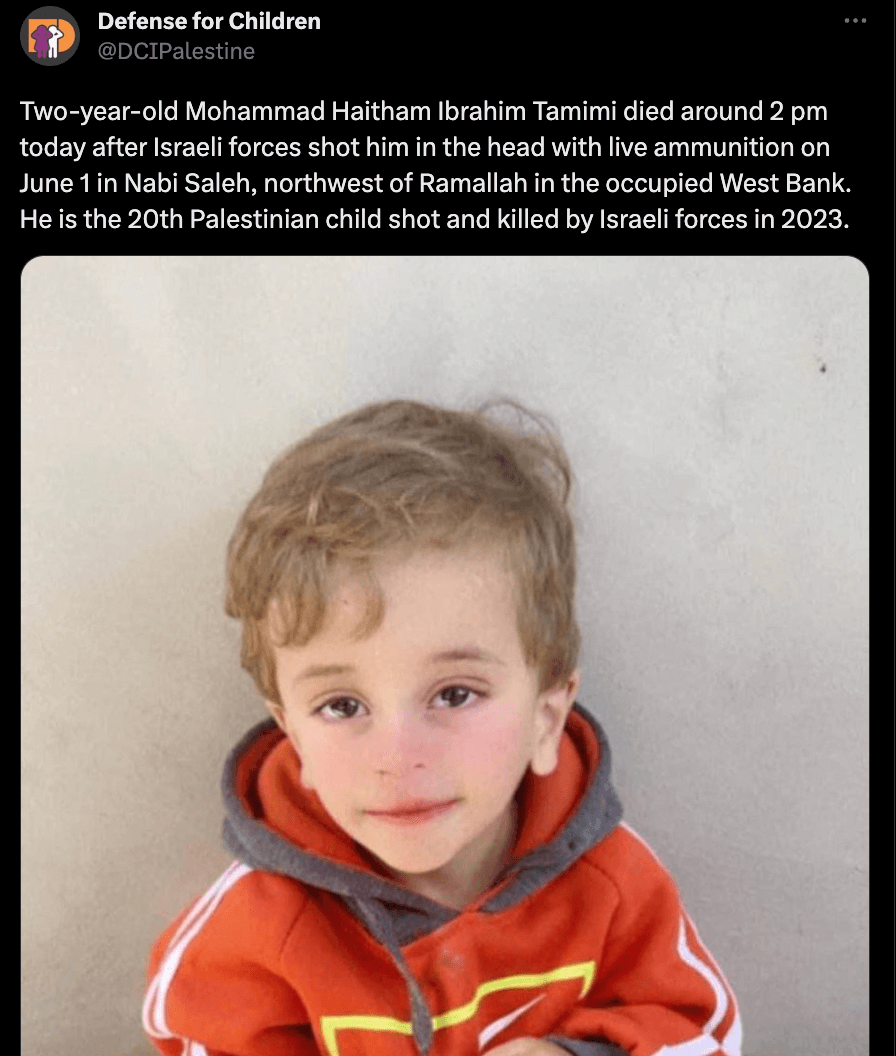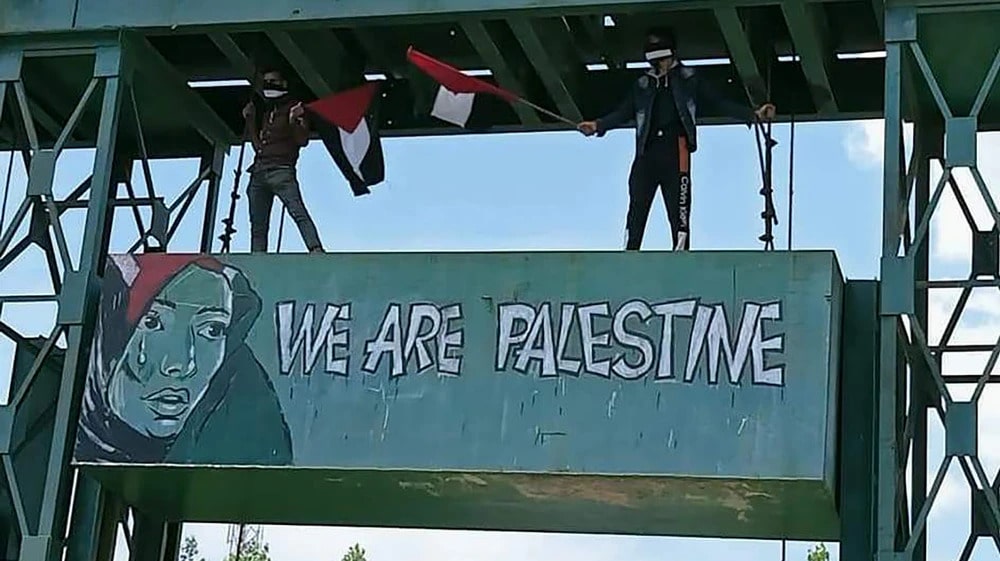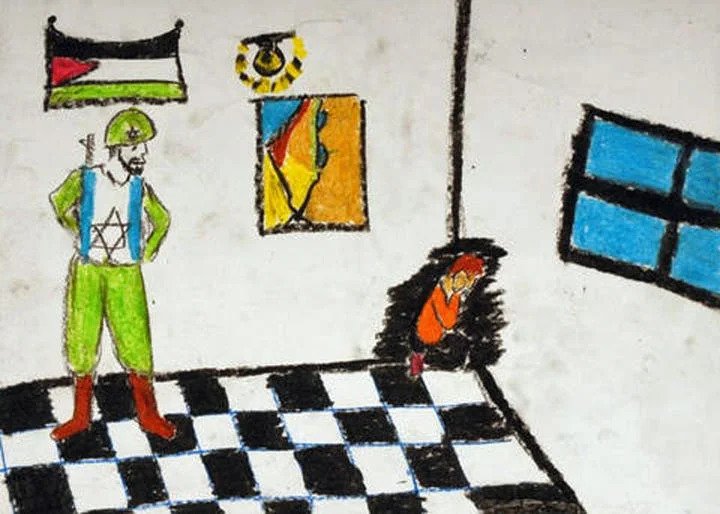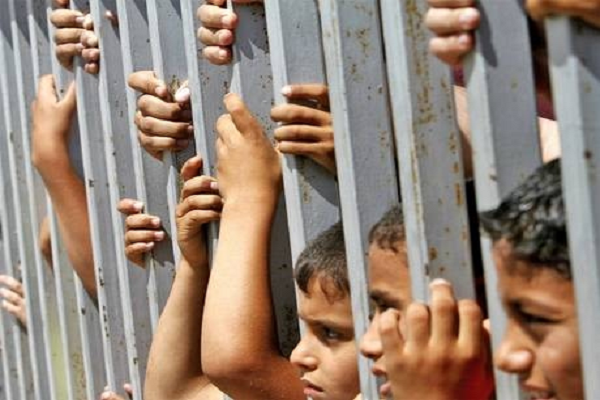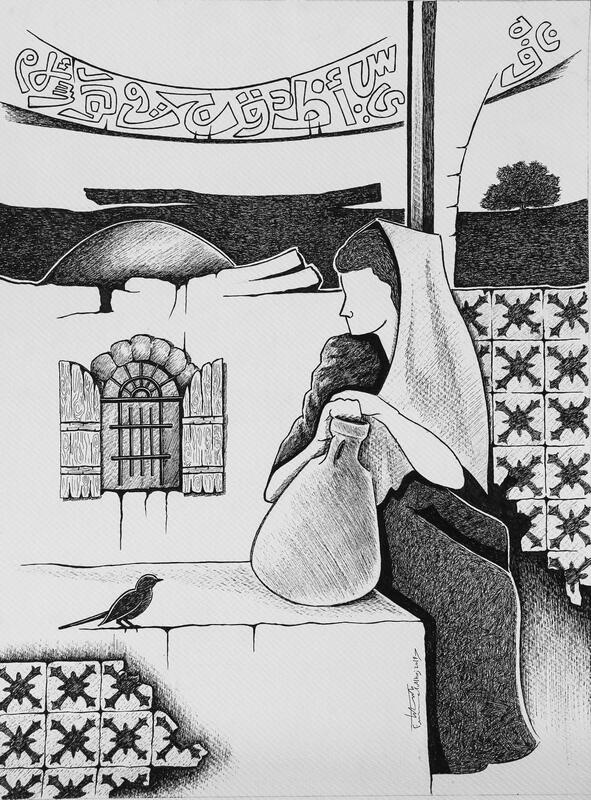|
Written Format of Justice For All Canada’s address at the UN Human Rights Council.
By: Tazeen Hassan, Justice For All Canada, Campaign Manager My name is Tazeen Hasan, and I am honored to represent Justice For All, an organization dedicated to combating global Islamophobia particularly the one which leads to genocide. It is a privilege to address the 56th session of the Human Rights Council in Geneva. I extend my gratitude to all the organizers of this event for addressing such a timely and relevant issue that impacts 2 billion Muslims worldwide, constituting nearly one-fourth of the world's population. We live in a world where Islamophobia intersects not only with settler colonialism, apartheid, and ethnic cleansing but also culminates in genocide, as witnessed in India, Kashmir, China, Myanmar and now in Gaza. Unfortunately, we are gathering at a time when the Israeli bombardment of Gaza has entered its ninth month, a situation deemed a plausible case of genocide by the ICJ. While it is evident that 75-years long Israeli aggression towards Palestinains is driven by settler colonization, the silence of Western powers appears rooted in Islamophobia. During the recent G7 summit in Italy, a special event was organized for Ukraine, yet Gaza received no comparable consideration, despite widespread acknowledgment that Israeli actions against Palestinians are far more brutal than Russian actions in Ukraine. Prompt arrest warrants were issued against Putin, whereas warrants against Netanyahu still remain pending. These double standards are clearly indicative of Islamophobia. Islamophobia has existed as long as Islam itself. The persecution of Muslims by the Quraysh was an early manifestation of this prejudice. Islamophobia fueled the Crusades, the Spanish Inquisition, the anti-Muslim rhetoric of Eurocentric orientalists, and the vilification of the Prophet by Voltaire in 17th century France. Islamophobia manifests in various forms: the Naqab and Burkini bans in France, discriminatory immigration policies and the anti-immigrant shift in Western politics, the rise of far-right power in recent EU election results, predominantly Muslim no-fly lists in Canada and the US, and the suspension of anti-war peaceful student protesters at Harvard and Columbia, where their constitutional rights of freedom of expression and peaceful assembly were denied. This pattern is also evident in media and narrative framing, with any criticism of India and Hindutva being labeled as Hinduphobia, and criticism of Israel being labeled as Anti-Semitism. Neither Islamophobia nor the use of arts to express it is novelty. Islamophobia still persists in various forms of art. For example, the 2015 film 'American Sniper' which vilified Iraqis who suffered from a war waged on the fabricated pretext of weapons of mass destruction. Similarly, Bollywood movies like 'Kerala Story' and 'Kashmir Files' depict Muslims as villains and aggressors, perpetuating negative stereotypes. Films like 'Article 370' also whitewashed the Indian genocide in Kashmir. When Islamophobia is combined with majoratarianism, occupation, settler colonization, apartheid, and ethnic cleansing, it often results in genocide. In India, this manifests through majoritarianism and legislations like the CAA, which strips citizenship rights from Muslims. The Chief Minister of the biggest Indian state of Uttara Paradesh, is known as 'Bulldozer Baba,' because he gained notoriety for demolishing Muslim homes with bulldozers. His influence extends beyond India; in 2022, an Indian independence rally in New Jersey prominently featured a bulldozer adorned with images of Yogi Adityanath, celebrating his anti-Muslim policies. This blatant display abroad begs the question: what else but Islamophobia could drive such actions in the world's largest democracy? Islamophobia is fueling yet another genocide. Millions of Uyghurs in north west of China have been detained for signs of extremism. Simply having a beard, naming children Muhammad or Omar, fasting during Ramadan, or having more than three children results in sentences of 10 to 20 years in prison. Even those not guilty of practicing their faith were sent to reeducation camps, where they were coerced into abandoning their Islamic and Uyghur identities. Upon release, they are sent to forced labor camps to become part of China's export industry. Families have been torn apart, with children sent to state-run orphanages. Uyghur women face forced sterilizations to curb Uyghur births. According to genocide convention, preventions of births in a community and transferring its children to another community is considered genocide. This genocidal project under the pretext of combating islamic extremism is almost at its completion. The stateless Rohingya of Myanmar are enduring a slow genocide for decades, which escalated into a full-scale genocide in 2017 when they suffered brutal killings, rapes, and the burning of their homes and villages by the Burmese army. Around one million Rohingya fled to Bangladesh, where they now face a miserable humanitarian crisis. Canada was the first Western country to recognize the Rohingya genocide in 2018. Six years later, we are still in the initial stages of discussing whether we should offer them immigration. The same holds true for Palestinian children in Gaza, who endure genocide while the world watches, leaving them nowhere to seek refuge. In stark contrast, the Western world immediately and unconditionally opened its doors to Ukrainians as soon as conflict broke out there. These double standards glaringly highlight Islamophobia in geopolitics. Islamophobia is also manifesting itself in the environmental genocide of Kashmir under the BJP government. Time doesn't allow me to explain the genocidal policies of the Indian government which are fatal for the population of Kashmir. We inhabit a world that upholds international law, and we all share international obligations under genocide convention, Un charter of human rights, and International covenent of civil and political rights. In the end I will appreciate The UN general assembly’s resolution in March as a significant milestone in combating Islamophobia. However, I on behalf of Justice For All Canada recommend that UN the develops the mechanisms to combat geopolitical Islamophobia which is intersecting with occupation, settler colonization, apartheid and leading to genocide. In an eye-opening analysis, Tazeen Hasan delves into the motivations behind the warm welcome of Palestinian President Mahmoud Abbas in China and highlights the urgent need for global scrutiny and accountability regarding China's treatment of Uyghurs in Xinjiang.
Mahmoud Abbas, the President of the Palestinian Authority, recently concluded a successful four-day state visit to China in mid-June. The visit was marked by a warm reception from Chinese President Xi Jinping, who emphasized the strong friendship and partnership between China and Palestine. In a significant development, both nations issued a joint statement officially declaring the establishment of a "strategic partnership" between them. This move highlights the growing ties and cooperation between China and Palestine. However, China's recent efforts to establish a "strategic partnership" with Palestine and other Muslim countries in the region must not distract the world from the egregious crimes against humanity being committed by the Chinese government. By courting Palestine and Muslim-majority nations, China aims to whitewash its own record of religious persecution and genocide against Uyghur and other Turkic-speaking minorities in Xinjiang. While it may seem odd for China, a major global power, to seek such a partnership with a small and impoverished state like Palestine, it is essential to understand China's broader geopolitical strategy. China has been actively cultivating relationships with the Global South, particularly Arab and Muslim countries, in an attempt to gain support and influence in international affairs. By championing Palestinian rights, China seeks to portray itself as an anti-colonial voice and a friend of the Arab/Muslim world. China's rhetoric in support of Palestine is seemingly commendable, but the stark reality is that its actions tell a different story. China has strong political and economic ties with Israel and will not risk endangering those relationships by genuinely supporting the Palestinian cause. In fact, China's trade with Israel is nearly 100 times greater than its trade with Palestine. It is clear that China's support for Palestine is more about optics and self-interest rather than genuine concern for the Palestinian people. The "strategic partnership" agreement between China and Palestine includes commitments to support the establishment of an independent Palestinian state based on the 1967 borders and to maintain the historical status quo of religious sites in Jerusalem. However, these commitments are not conditional on Israeli agreement or adherence to international law. This implies that China will not stand against Israeli actions that violate Palestinian rights, such as annexation of the West Bank or the expulsion of Palestinians from their homes. China's silence on potential Israeli violations reveals its true intentions. It is willing to turn a blind eye to Israeli aggression to maintain its economic and political interests. If China genuinely cared about the plight of the Palestinian people, it would take a firm stance against Israeli injustices. Instead, China's support for Palestine serves as a convenient cover to divert attention from its own horrific human rights abuses in Xinjiang. In Xinjiang, over a million Muslims, primarily Uyghurs, have been detained in internment camps. Reports of forced labor, cultural assimilation, and religious persecution paint a bleak picture of the atrocities being committed by the Chinese government. Those who have been released from the camps are often forced into labor camps, further perpetuating their exploitation. China fears that Muslim-majority countries will rally in support of Uyghurs and Turkic-speaking Muslims, exposing its crimes to the world. By cultivating alliances with Muslim nations, China hopes to isolate the Uyghur cause and prevent international support for their struggle. China's strategic partnership with Palestine is not based on genuine solidarity but on self-interest and geopolitical maneuvering. It seeks to bolster its image as a global power and secure support for its controversial policies, such as the "one China" policy and its opposition to foreign interference in its internal affairs. Moreover, it allows China to undermine the influence of Western countries, particularly the United States. While China's partnership with Palestine may shift the dynamics in the Israeli-Palestinian conflict, it is imperative not to lose sight of the larger picture. China's actions in Xinjiang cannot be overshadowed or excused by its support for Palestine. The international community must remain vigilant and hold China accountable for its crimes against humanity. Genuine support for Palestine should be based on principles of justice, human rights, and respect for international law, not on geopolitical calculations or attempts to divert attention from one's own misdeeds. #Uyghurs #SaveUyghur #Palestine #Israel Mohammed al-Tamimi, a 2.5-year-old toddler, became the youngest victim in the series of tragic deaths among Palestinian children this year. Shot in the head by Israeli forces, his young life was cut short, with his brain vessels ruptured beyond repair. This heart-wrenching incident occurred in Gaza and the West Bank, territories that have been heavily impacted by the Israeli-Palestinian conflict. Mohammed's story is just one example of the ongoing violence and loss of life that Palestinian children endure daily. Regrettably, he is not the only child who has fallen victim to such tragic circumstances. His death marks the 27th case of a Palestinian child killed by Israeli forces in 2023 alone. The constant killing of Palestinian children, including toddlers and infants, using live ammunition by Israeli soldiers, is a grave violation of human rights and humanitarian principles. International law clearly states that the use of lethal force should only be employed as a last resort, when there is an imminent threat to life. However, the repeated incidents of children being targeted suggest a systemic failure to protect the most vulnerable individuals in this conflict.
Every child, regardless of their nationality, place of residence or ethnicity, is entitled to the right to life, as enshrined in the Universal Declaration of Human Rights. The loss of innocent lives and the resulting trauma inflicted upon Palestinian children not only obstructs the path to a peaceful resolution but also fuels an unending cycle of violence and revenge. Despite its reputation as a champion of human rights, Canada has been disappointingly indifferent to the plight of Palestine. The Canadian government's lack of action in addressing the Israeli occupation and apartheid policies is concerning. It is crucial for Canadian policymakers to recognize their role in influencing change and promoting justice in the region. Canada's support for the Israeli government's policies, including military cooperation and economic ties, cannot be disregarded. By continuing these associations, Canada indirectly sustains an oppressive regime that perpetuates human rights abuses and denies Palestinians their basic rights, including the right to self-determination. To rectify this situation, Canadian policymakers must take immediate action to halt their support for the Israeli occupation and apartheid regime. By doing so, Canada can contribute to ending the cycle of violence and fostering a just and lasting resolution to the Israeli-Palestinian conflict. Furthermore, Canadian citizens must hold their representatives accountable and demand a shift in policy. Grassroots movements and civil society organizations have a vital role to play in raising awareness, educating the public, and advocating for change. It is imperative to mobilize public opinion and urge policymakers to take a principled stance against the violations of Palestinian rights. You Can Take Action!
Written by Tazeen Hasan
Every year on April 17th, Palestinians commemorate Prisoners Day to raise awareness about the plight of thousands of Palestinian political prisoners languishing in Israeli jails. Among those prisoners are children, who are often subjected to brutal treatment and denied their fundamental rights. One such child is five-year-old Muhammad Elayyan, who was summoned for interrogation by Israeli authorities. His father accompanied him, holding a toy and snacks for the child, who could potentially face detention for allegedly throwing stones at Israeli soldiers. Sadly, Muhammad's story is not unique. Since 2000, ten and twelve thousand Palestinian children have been arbitrarily detained in Israeli military detention centers, mostly on charges of throwing stones. This charge carries a maximum sentence of 20 years in prison. Palestinian children are denied fair trials and fundamental rights, and are often kept in pretrial or administrative detention for years, sometimes released only after years of arbitrary incarceration. According to UNICEF, the ill-treatment of Palestinian children in the Israeli military detention system is widespread, systematic, and institutionalized throughout the process, from the moment of arrest until the child’s prosecution and eventual conviction and sentencing. In June 2020, the Annual Report of the Secretary-General for Children and Armed Conflict revealed that the UN received affidavits from 166 children who reported ill-treatment and breaches of due process by Israeli forces, including physical violence and one threat of sexual violence. Similarly, a study by Save the Children UK consulted 430 minor detainees over ten years and found that 8 in 10 minor Palestinian detainees reported physical beating while 9 in 10 reported verbal abuse. The Amnesty International report published in February 2022 declared Israel an apartheid regime. According to the report, Palestinian children are subjected to torture and other ill-treatment, including to obtain “confessions,” and are denied access to counsel or family visits. These acts are a violation of International Humanitarian and Human Rights laws. Report concludes that Israel is in breach of eight of its international legal obligations, including;
Palestinian Prisoners Day is a reminder that Israel's systematic mistreatment of Palestinian political prisoners and children must end. It is time for the international community to take action and hold Israel accountable for its blatant human rights violations against children. Don’t Stop Now
By Tazeen Hasan
In two far-off lands, on opposite sides of the earth, A story of destruction, of homes and hearth, Kashmir and Palestine, both places we know, Where houses are razed, and families made to go. In Kashmir, the army rolls in with tanks and guns, Bulldozers and explosives, the job has begun, They give no warning, no time to pack, As they shatter the walls, and the roof they hack. In Palestine, it's the Israeli army's might, The bulldozers come, day or night, With no care for the people, who call it home, Their houses are leveled, to the ground they're thrown. Both places are scarred, by these acts of violence, As families are left, with no place to find solace, Their memories, their dreams, their hopes and their fears, Are crushed, shattered, in a flood of tears. The world looks on, with a deafening silence, As the people of Kashmir and Palestine, Are left to bear, the brunt of this hate, Their stories, their pain, they cannot abate. Yet, amidst all this, they rise up again, With a resilience that's hard to contain, Their spirit, their strength, they will not yield, For in their hearts, a flame still burns, unhealed. So, let us stand with them, in their darkest hour, And lift our voices, with all our power, To tell the world, that we will not be still, Till their houses are rebuilt, on the same old hill. My name is Hasan Tamimi.
I became blind in Israeli custody when I was 17. Due to medical negligence during the detention. While I had a medical condition affecting my kidneys and liver at the time, I was arrested for throwing stones. Even though my mother and family informed the police about my medical condition; I was denied critical medicines for two months. When I was detained, my doctor told my mother, If I am not given medicines, I may go into a coma, Or something terrible may happen to me. I had a medical condition affecting my kidneys and liver. This required regular medications; and a strict diet. The Israeli soldiers denied medications, Kept saying they are checking them; for two months. And was finally taken to the hospital by guards, When other prisoners protested. But by then, I had gone into a coma I remained in a coma for three days, I eventually lost my eyesight due to nerve damage. When I woke up, I couldn't see anything. My mother was sitting beside me. I asked my mother, What is going on? She told me, you won't be able to see anymore. Doctors told us this is a permanent loss. I said to her, ‘trust in God’. Israeli soldiers mistreated me in the hospital too. I was handcuffed to the bed. When I wanted to use the bathroom, The soldiers wouldn't let me, They would bring a box for me to urinate, When I would ask for water, They would give me a small cup of water, Which wasn't enough to quench my thirst, I am home now, Trying to adjust to life without eyesight, The blindness has affected my life, I can't study anymore, I can't see my family and friends. I pray to God to restore my eyesight. This poetic depiction is based on the real-life story of 18-year-old Palestinian youth detainee Hassan Tamimi, who was subjected to medical negligence during his detention by Israeli forces. Hassan was suffering from liver and kidney issues since early childhood. He required a particular diet and treatment; however, Israel did not allow Hassan his medication and he eventually lost his eyesight. Written by a Canadian activist for prisoners of conscience. The saga of a Palestinian child who was shot, arrested without warrant, and denied medical treatment until he was forced to falsely confess throwing two stones at the soldiers. He was tortured, sleep deprived, bound by a plastic cable, blindfolded, and intimidated by a gun during interrogation.
I am a Palestinian child. I was arrested at the end of a school day. I was arrested without a warrant. I was blindfolded, sleep deprived, and my hands were tied. I was denied legal aid. I was denied medical aid. I was tortured during interrogation. When I was only 15. I was arrested because I was just in the wrong place, At the wrong time. There were clashes at the school gate. I tried to walk through the clashes quickly. But I was shot in my right leg by an Israeli soldier. While I collapsed to the ground bleeding, the soldiers came and started beating me. Paramedics tried to reach me to take me to the hospital in an ambulance, but the soldiers wouldn't let them. I was taken to the interrogation centre instead of the hospital. Soldiers wrapped a bandage around my leg. Then they blindfolded me, tied my hand with a plastic cable, And took me to a second interrogation centre. I was confused. I asked to talk to my parents, and to have legal advice as I knew my rights. My interrogators refused. My interrogators keep shouting at me. They placed a gun on the table, In front of me, to intimidate me. They said bad, bad words. I don't want to think about those words. When I refused to confess, they stopped interrogation, they took me to a detention cell, They made me take off all my clothes, in the freezing cold of December. And chained me to a metal chair by my wrist and ankles. The next day, they interrogated me again. My wounds were hurting. I kept telling them I needed medical treatment. They asked me to show them my injury. I showed them my bullet wounds, They pressed the wound, And said they wouldn't stop until I confess. It was the worst pain I ever felt. I realized my suffering would end until I confess, I finally decided to confess, I said that I threw two stones. It was then that I got medical treatment. Two days after I was shot. It still hurts to this day, two years later. After this forced confession, I was sentenced to seven months in prison. An ugly, ugly place. I don't like to think about it. They would set off an alarm at midnight, at 3 am and 6 am, so we could never sleep for long. If we do not wake up to these alarms, We will be beaten. I was beaten with wooden sticks a few times. I still have back pain now because of a bad beating. I was not allowed education during detention. All I want is peace and the future. I was released after seven months, but the physical and psychological scars remain. No child should be arrested without warrant, No child should be subjected to torture, No child should be denied his or her fundamental rights. No child should be denied crucial medical treatment, No child should be forced to confess, No child should be denied legal aid during interrogation. No child should be arrested at the end of a school day. I was arrested at the end of a school day. When I was 15. Story is based on the real life events of a Palestinain child. The ex-detainee child was interviewed by Save the Children, UK. The real life story was published in their report titled Defenceless: The Impact of Detention on Palestinian Children. The child’s name was changed to protect him and his family from further aggression. Written by a Canadian activist. I was a 17-year-old minor when Israeli forces entered my house, blindfolded, physically assaulted, and arrested me.
It began like most night arrests. Israeli soldiers entered my house at 2 AM. They bounded, blindfolded, and physically assaulted me. They searched my house and arrested me without any warrant. I was not informed of the reason for my arrest. My name is Laith. I was a 17-year-old minor when this happened. I live in Ramallah on the West Bank of the land called Palestine. Over the next 11 hours, I was transferred to multiple locations and interrogated about throwing stones at Israeli soldiers. Throwing stones is a security offence under Israeli military law. I was presented to multiple courts but they never charged me for any crime. They released me after 46 weeks of detention. BUT I missed my final year of high school. I was never told why I was being arrested. I have never presented a warrant. I also want to tell you that I am not the only minor who was illegally imprisoned or more correctly kidnapped by the Israeli military. 10,000 Palestinian minors have been arrested and held in the Israeli military detention system since 2000. In the month of April only, Israeli forces arrested 1,228 Palestinians in April, including 156 minors and 11 women, and Palestinian prisoners’ support organizations. We are tortured and humiliated in Israeli prisons. We are bullied to get confessions. Denied water when we are thirsty. Denied enough food. Denied medicines. Denied education. Denied free and fair trial. We are denied our basic rights. I want to tell you that we are separated from my parents, tortured, harassed, denied education, and denied the right to a fair trial. Every year, Israel prosecutes between 500 and 700 Palestinian children in military courts. And the world is silent. And western countries like Canada which support Israel financially and morally have a critical role in our persecution. This story has been reconstructed in first-person narrative from mainstream Palestinian media and human rights reports. Written by Tazeen Hasan. |
